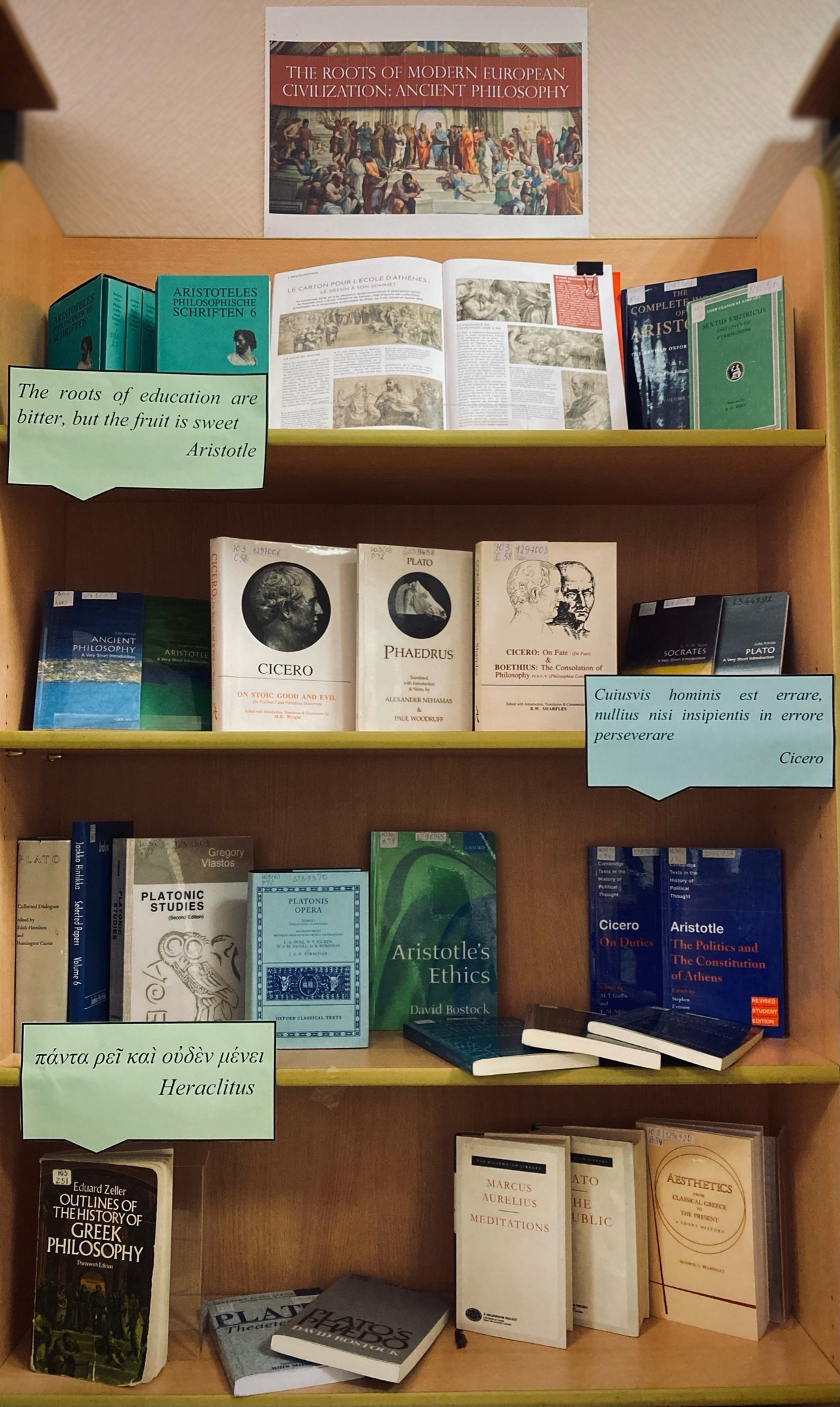πάντα ρεῖ καὶ οὐδὲν μένει
Everything flows, everything changes
Heraclitus
Everything flows, everything changes
Heraclitus
The Circulation Desk of Foreign Literature (4 Turgeneva St., auditorium 356) welcomes readers to the exhibition devoted to ancient philosophy.
Ancient philosophy is a branch of philosophy which covers Roman and Greek history from the late VIIth century BC until the VIth century AD (the last philosophical school in Athens was shut down in 529 by a decree of the Emperor Justinian). Thales is considered the first ancient philosopher while Boethius, in his turn, is considered the last.
It is interesting to note that ancient philosophy originated in an inseparable connection with scientific knowledge, especially mathematical and natural science disciplines. The ancient Greek traditions of wisdom and mysteries had a huge influence on the formation of ancient philosophy which contributed to the shaping of the very concept of «philosophy», its subject and methods. Later on, the formation and development of Christianity was based on the philosophical ideas of antiquity.
Actually all subsequent schools of Western philosophy owe their origins to Ancient Greece and Ancient Rome. The first two main types of philosophical worldview – materialism (Democritus) and realism (Plato) – first arise exactly there. Subsequently, the same discourses about the nature of man, his relationship with God, the problems of the nature of cognition and thinking have continued in the Middle Ages, in the Modern and Contemporary times up to the present.
The publications presented at the exhibition in English, German, Greek and Latin will introduce you to the works of great thinkers – Aristotle, Plato, Cicero, Marcus Aurelius, etc., as well as will acquaint you with researches on their biography and works. Thanks to these books, the reader will be able to immerse himself in the world of philosophy of ancient times and independently ensure the relevance of the ideas set forth many centuries ago.
The exhibition will be available until the 1st of July.
Author and translator: K.V. Khudyshkina




